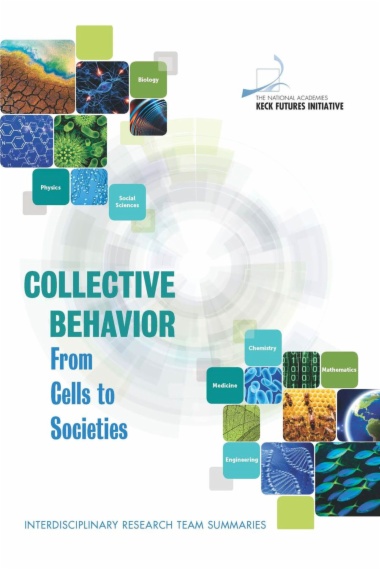Collective Behavior is the summary of the 2014 National Academies Keck Futures Initiative Conference on Collective Behavior. Participants were divided into fourteen interdisciplinary research teams. The teams spent nine hours over two days exploring diverse challenges at the interface of science, engineering, and medicine. The composition of the teams was intentionally diverse, to encourage the generation of new approaches by combining a range of different types of contributions. The teams included researchers from science, engineering, and medicine, as well as representatives from private and public funding agencies, universities, businesses, journals, and the science media. Researchers represented a wide range of experience - from postdoc to those well established in their careers - from a variety of disciplines that included science and engineering, medicine, physics, biology, economics, and behavioral science. The teams needed to address the challenge of communicating and working together from a diversity of expertise and perspectives as they attempted to solve a complicated, interdisciplinary problem in a relatively short time. This report highlights the presentations of the event and includes the team reports and pre-meeting materials.
- Cover
- Front Matter
- Conference Summary
- IDR Team Summary 1: Using our understanding of cooperation in cognitive organisms to understand cooperation in organisms or entities without brains and vice versa.
- IDR Team Summary 2: How would you spend $100 million over the next five years to understand and harness the power of social networks?
- IDR Team Summary 3: What proximate mechanisms underlie helping and cooperation?
- IDR Team Summary 4: Develop general principles to understand the interplay between individual variation and group function.
- IDR Team Summary 5: How do we solve the tragedy of the commons?
- IDR Team Summary 6: Are there fundamental principles underlying the transition from one to two individuals? Are these scalable to larger social groups?
- IDR Team Summary 7: Evaluate the degree to which cooperation and conflict need to be balanced in order to facilitate the evolution, expansion, optimal performance, and maintenance of collective behaviors.
- IDR Team Summary 8: From single cells to tissue: What causes organismality to emerge from individual cells, achieving control of conflict at lower levels so the organism becomes the unit of adaptation?
- IDR Team Summary 9: How do general principles of cooperation and competition influence our understanding of brain networks?
- Appendixes
- List of Collective Behavior Preconference Tutorials
- Agenda
- Participant List

